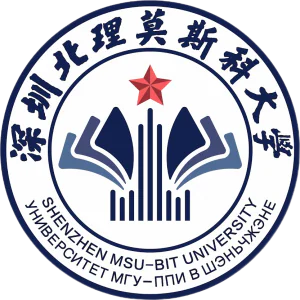Open Access


Studies in humanized mice and convalescent humans yield a SARS-CoV-2 antibody cocktail
Johanna Hansen
1
,
Alina Baum
1
,
Kristen E Pascal
1
,
Vincenzo Russo
1
,
Elzbieta Wloga
1
,
Ying Yan
1
,
Katrina Koon
1
,
Krunal Patel
1
,
Kyung Min Chung
1
,
Aynur Hermann
1
,
Erica Ullman
1
,
Jonathan Cruz
1
,
Ashique Rafique
1
,
Tammy Huang
1
,
Marine Malbec
1
,
Wen Yi Lee
1
,
Richard Welsh
1
,
Glen Farr
1
,
Seth Pennington
1
,
Dipali Deshpande
1
,
Jemmie Cheng
1
,
Anke Watty
1
,
Pascal Bouffard
1
,
Robert BABB
1
,
Calvin Chen
1
,
Bojie Zhang
1
,
Annabel Romero Hernandez
1
,
Kei Saotome
1
,
Yi Zhou
1
,
Matthew Franklin
1
,
Sumathi Sivapalasingam
1
,
David Chien Lye
2
,
Stuart Weston
3
,
James Logue
3
,
Robert Haupt
3
,
Matthew Frieman
3
,
Gang Chen
1
,
William H. Olson
1
,
Andrew J. Murphy
1
,
Neil Stahl
1
,
George D. Yancopoulos
1
,
1
Regeneron Pharmaceuticals, Inc., Tarrytown, NY 10591, USA.
|
2
Publication type: Journal Article
Publication date: 2020-08-21
scimago Q1
wos Q1
SJR: 10.416
CiteScore: 48.4
Impact factor: 45.8
ISSN: 00368075, 10959203
PubMed ID:
32540901
Multidisciplinary
Abstract
An antibody cocktail against SARS-CoV-2 There is an urgent focus on antibodies that target the severe acute respiratory syndrome coronavirus 2 (SARS-CoV-2) viral spike and prevent the virus from entering host cells. Hansen et al. generated a large panel of antibodies against the spike protein from humanized mice and recovered patients. From this panel, they identified several neutralizing antibodies, including pairs that do not compete for binding to the receptor binding domain. Baum et al. focused in on four of these antibodies. All four are effective against known spike variants. However, by growing a pseudovirus that expresses the spike in the presence of individual antibodies, the authors were able to select for spike mutants resistant to that antibody. In contrast, escape mutants are not selected when pseudovirus is grown in the presence of pairs of antibodies that either do not compete or only partially compete for binding to the RBD. Such a pair might be used in a therapeutic antibody cocktail. Science, this issue p. 1010, p. 1014 A noncompeting antibody cocktail to SARS-CoV-2 spike protein safeguards against the ability of virus mutations to lead to antibody resistance. Neutralizing antibodies have become an important tool in treating infectious diseases. Recently, two separate approaches yielded successful antibody treatments for Ebola—one from genetically humanized mice and the other from a human survivor. Here, we describe parallel efforts using both humanized mice and convalescent patients to generate antibodies against the severe acute respiratory syndrome coronavirus 2 (SARS-CoV-2) spike protein, which yielded a large collection of fully human antibodies that were characterized for binding, neutralization, and three-dimensional structure. On the basis of these criteria, we selected pairs of highly potent individual antibodies that simultaneously bind the receptor binding domain of the spike protein, thereby providing ideal partners for a therapeutic antibody cocktail that aims to decrease the potential for virus escape mutants that might arise in response to selective pressure from a single-antibody treatment.
Found
Nothing found, try to update filter.
Found
Nothing found, try to update filter.
Top-30
Journals
|
10
20
30
40
50
60
70
80
90
|
|
|
bioRxiv
85 publications, 7.05%
|
|
|
Nature Communications
35 publications, 2.9%
|
|
|
Cell Reports
34 publications, 2.82%
|
|
|
Frontiers in Immunology
32 publications, 2.66%
|
|
|
Viruses
25 publications, 2.07%
|
|
|
Cell
23 publications, 1.91%
|
|
|
Science
21 publications, 1.74%
|
|
|
Nature
20 publications, 1.66%
|
|
|
iScience
17 publications, 1.41%
|
|
|
PLoS Pathogens
14 publications, 1.16%
|
|
|
Cell Host and Microbe
12 publications, 1%
|
|
|
Immunity
11 publications, 0.91%
|
|
|
Vaccines
11 publications, 0.91%
|
|
|
Scientific Reports
11 publications, 0.91%
|
|
|
Cell Discovery
11 publications, 0.91%
|
|
|
Antiviral Research
10 publications, 0.83%
|
|
|
International Journal of Molecular Sciences
10 publications, 0.83%
|
|
|
Signal Transduction and Targeted Therapy
10 publications, 0.83%
|
|
|
Journal of Virology
10 publications, 0.83%
|
|
|
Computational and Structural Biotechnology Journal
9 publications, 0.75%
|
|
|
Cell Reports Medicine
9 publications, 0.75%
|
|
|
Communications Biology
8 publications, 0.66%
|
|
|
Proceedings of the National Academy of Sciences of the United States of America
8 publications, 0.66%
|
|
|
mAbs
7 publications, 0.58%
|
|
|
Science advances
7 publications, 0.58%
|
|
|
medRxiv : the preprint server for health sciences
7 publications, 0.58%
|
|
|
Frontiers in Molecular Biosciences
6 publications, 0.5%
|
|
|
Journal of Molecular Biology
6 publications, 0.5%
|
|
|
PLoS ONE
6 publications, 0.5%
|
|
|
10
20
30
40
50
60
70
80
90
|
Publishers
|
50
100
150
200
250
300
|
|
|
Cold Spring Harbor Laboratory
291 publications, 24.15%
|
|
|
Elsevier
252 publications, 20.91%
|
|
|
Springer Nature
186 publications, 15.44%
|
|
|
MDPI
87 publications, 7.22%
|
|
|
Frontiers Media S.A.
64 publications, 5.31%
|
|
|
Wiley
46 publications, 3.82%
|
|
|
American Association for the Advancement of Science (AAAS)
39 publications, 3.24%
|
|
|
Taylor & Francis
33 publications, 2.74%
|
|
|
American Chemical Society (ACS)
31 publications, 2.57%
|
|
|
Oxford University Press
30 publications, 2.49%
|
|
|
American Society for Microbiology
28 publications, 2.32%
|
|
|
Public Library of Science (PLoS)
23 publications, 1.91%
|
|
|
Proceedings of the National Academy of Sciences (PNAS)
8 publications, 0.66%
|
|
|
Royal Society of Chemistry (RSC)
6 publications, 0.5%
|
|
|
Rockefeller University Press
6 publications, 0.5%
|
|
|
American Society for Clinical Investigation
5 publications, 0.41%
|
|
|
Bentham Science Publishers Ltd.
4 publications, 0.33%
|
|
|
Massachusetts Medical Society
3 publications, 0.25%
|
|
|
American Society for Biochemistry and Molecular Biology
3 publications, 0.25%
|
|
|
European Molecular Biology Organization
3 publications, 0.25%
|
|
|
American Medical Association (AMA)
3 publications, 0.25%
|
|
|
eLife Sciences Publications
3 publications, 0.25%
|
|
|
International Union of Crystallography (IUCr)
2 publications, 0.17%
|
|
|
Mary Ann Liebert
2 publications, 0.17%
|
|
|
Portland Press
2 publications, 0.17%
|
|
|
Ovid Technologies (Wolters Kluwer Health)
2 publications, 0.17%
|
|
|
Newlands Press Ltd
2 publications, 0.17%
|
|
|
Higher Education Press
2 publications, 0.17%
|
|
|
Social Science Electronic Publishing
2 publications, 0.17%
|
|
|
50
100
150
200
250
300
|
- We do not take into account publications without a DOI.
- Statistics recalculated weekly.
Are you a researcher?
Create a profile to get free access to personal recommendations for colleagues and new articles.
Metrics
1.2k
Total citations:
1205
Citations from 2024:
150
(12.45%)
Cite this
GOST |
RIS |
BibTex |
MLA
Cite this
GOST
Copy
Hansen J. et al. Studies in humanized mice and convalescent humans yield a SARS-CoV-2 antibody cocktail // Science. 2020. Vol. 369. No. 6506. pp. 1010-1014.
GOST all authors (up to 50)
Copy
Hansen J., Baum A., Pascal K. E., Russo V., Giordano S., Wloga E., Fulton B. O., Yan Y., Koon K., Patel K., Chung K. M., Hermann A., Ullman E., Cruz J., Rafique A., Huang T., FAIRHURST J. L., Libertiny C., Malbec M., Lee W. Y., Welsh R., Farr G., Pennington S., Deshpande D., Cheng J., Watty A., Bouffard P., BABB R., Levenkova N., Chen C., Zhang B., Romero Hernandez A., Saotome K., Zhou Y., Franklin M., Sivapalasingam S., Lye D. C., Weston S., Logue J., Haupt R., Frieman M., Chen G., Olson W. H., Murphy A. J., Stahl N., Yancopoulos G. D., Kyratsous C. A. Studies in humanized mice and convalescent humans yield a SARS-CoV-2 antibody cocktail // Science. 2020. Vol. 369. No. 6506. pp. 1010-1014.
Cite this
RIS
Copy
TY - JOUR
DO - 10.1126/science.abd0827
UR - https://doi.org/10.1126/science.abd0827
TI - Studies in humanized mice and convalescent humans yield a SARS-CoV-2 antibody cocktail
T2 - Science
AU - Hansen, Johanna
AU - Baum, Alina
AU - Pascal, Kristen E
AU - Russo, Vincenzo
AU - Giordano, Stephanie
AU - Wloga, Elzbieta
AU - Fulton, Benjamin O
AU - Yan, Ying
AU - Koon, Katrina
AU - Patel, Krunal
AU - Chung, Kyung Min
AU - Hermann, Aynur
AU - Ullman, Erica
AU - Cruz, Jonathan
AU - Rafique, Ashique
AU - Huang, Tammy
AU - FAIRHURST, JEANETTE L.
AU - Libertiny, Christen
AU - Malbec, Marine
AU - Lee, Wen Yi
AU - Welsh, Richard
AU - Farr, Glen
AU - Pennington, Seth
AU - Deshpande, Dipali
AU - Cheng, Jemmie
AU - Watty, Anke
AU - Bouffard, Pascal
AU - BABB, Robert
AU - Levenkova, Natasha
AU - Chen, Calvin
AU - Zhang, Bojie
AU - Romero Hernandez, Annabel
AU - Saotome, Kei
AU - Zhou, Yi
AU - Franklin, Matthew
AU - Sivapalasingam, Sumathi
AU - Lye, David Chien
AU - Weston, Stuart
AU - Logue, James
AU - Haupt, Robert
AU - Frieman, Matthew
AU - Chen, Gang
AU - Olson, William H.
AU - Murphy, Andrew J.
AU - Stahl, Neil
AU - Yancopoulos, George D.
AU - Kyratsous, Christos A.
PY - 2020
DA - 2020/08/21
PB - American Association for the Advancement of Science (AAAS)
SP - 1010-1014
IS - 6506
VL - 369
PMID - 32540901
SN - 0036-8075
SN - 1095-9203
ER -
Cite this
BibTex (up to 50 authors)
Copy
@article{2020_Hansen,
author = {Johanna Hansen and Alina Baum and Kristen E Pascal and Vincenzo Russo and Stephanie Giordano and Elzbieta Wloga and Benjamin O Fulton and Ying Yan and Katrina Koon and Krunal Patel and Kyung Min Chung and Aynur Hermann and Erica Ullman and Jonathan Cruz and Ashique Rafique and Tammy Huang and JEANETTE L. FAIRHURST and Christen Libertiny and Marine Malbec and Wen Yi Lee and Richard Welsh and Glen Farr and Seth Pennington and Dipali Deshpande and Jemmie Cheng and Anke Watty and Pascal Bouffard and Robert BABB and Natasha Levenkova and Calvin Chen and Bojie Zhang and Annabel Romero Hernandez and Kei Saotome and Yi Zhou and Matthew Franklin and Sumathi Sivapalasingam and David Chien Lye and Stuart Weston and James Logue and Robert Haupt and Matthew Frieman and Gang Chen and William H. Olson and Andrew J. Murphy and Neil Stahl and George D. Yancopoulos and Christos A. Kyratsous},
title = {Studies in humanized mice and convalescent humans yield a SARS-CoV-2 antibody cocktail},
journal = {Science},
year = {2020},
volume = {369},
publisher = {American Association for the Advancement of Science (AAAS)},
month = {aug},
url = {https://doi.org/10.1126/science.abd0827},
number = {6506},
pages = {1010--1014},
doi = {10.1126/science.abd0827}
}
Cite this
MLA
Copy
Hansen, Johanna, et al. “Studies in humanized mice and convalescent humans yield a SARS-CoV-2 antibody cocktail.” Science, vol. 369, no. 6506, Aug. 2020, pp. 1010-1014. https://doi.org/10.1126/science.abd0827.
Profiles
- Alina Baum
- Pascal Bouffard
- Kyung Min Chung
- Jonathan Cruz
- Dipali Deshpande
- Jeanette L Fairhurst
- Glen Farr
- M E Franklin
- Benjamin O Fulton
- Stephanie Giordano
- Johanna K Hansen
- Robert E Haupt
- Aynur Hermann
- Katrina Koon
- Christos A Kyratsous
- Wen-yi Lee
- Natasha Levenkova
- Christen Libertiny
- James N Logue
- Marine Malbec
- Catherine J Murphy
- William S Olson
- Kristen E Pascal
- Krunal Patel
- Ashique Rafique
- Vincenzo Russo
- Neil I Stahl
- Erica Ullman
- Richard Welsh
- Stuart M Weston
- Elzbieta Wloga
- Ying Yan
- B B Zhang
- Yi Zhou

















































